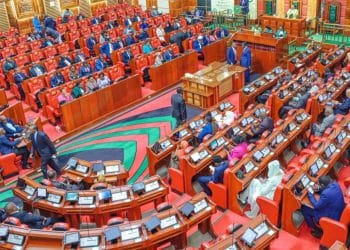A transformative bill tabled in Kenya’s Parliament seeks to overhaul the Directorate of Criminal Investigations (DCI) by replacing it with a new Criminal Investigations Service (CIS), according to reports from Parliament.
If passed, the National Police Service (Amendment) Bill 2025 would establish the CIS under the leadership of a Deputy Inspector General (DIG), marking a significant shift in Kenya’s approach to criminal investigations.
The proposed reforms aim to enhance efficiency, transparency, and public trust in the handling of serious crimes, including homicide, terrorism, and economic crimes.
The bill outlines that the CIS would recruit civilian officers with expertise in forensic science and related fields, a departure from the current DCI’s reliance on internal police recruitment.
This move is intended to professionalize investigations by incorporating specialized skills from the general public, with appointments restricted to ranks up to Senior Sergeant.
The current DCI Director, Mohamed Ibrahim Amin, would automatically transition to the DIG of CIS, ensuring continuity during the restructuring, as noted in the bill’s transitional provisions.
Additionally, the legislation proposes the establishment of a National Police Service Forensic Laboratory within the CIS, led by an Assistant Inspector-General.
This forensic lab would provide advanced services like ballistics, fingerprint analysis, and toxicology to support law enforcement agencies, including the Ethics and Anti-Corruption Commission (EACC) and the National Intelligence Service (NIS).
The proposed reforms, spearheaded by the Attorney General’s office and the Ministry of Interior, have sparked mixed reactions.
Supporters view the CIS as a step toward modernizing Kenya’s investigative framework, with one user stating, “Public recruitment for CIS could bring fresh expertise to tackle complex crimes.”
Critics, however, express concerns about potential politicization and the integration of civilians into a historically police-led structure.
The bill also includes amendments to enhance the autonomy of the General Service Unit (GSU), allowing its commandant to report directly to the Inspector General, bypassing the DIG of the Kenya Police Service.



















